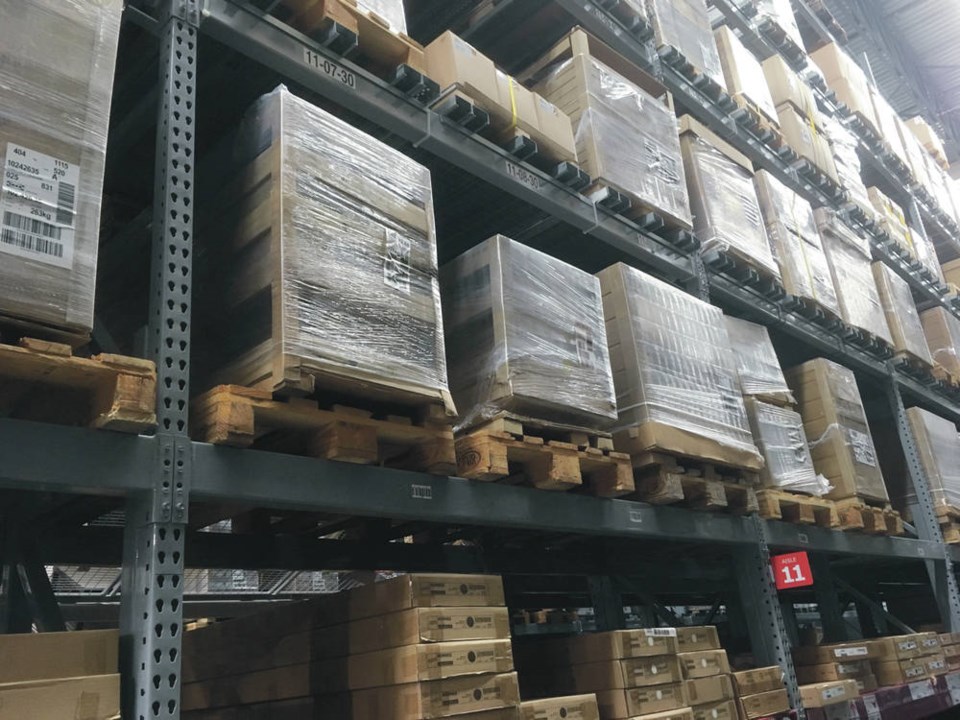Something good is happening: We are finally starting to question the economy and the way it works ŌĆö or fails to work ŌĆö for us and for nature, which sustains us.
A month ago I wrote a couple of columns about Doughnut Economics, then took a bit of a diversion to explore the Dasgupta report on including in the economy the costs we impose on nature, and ŌĆö last week ŌĆö the UN Secretary GeneralŌĆÖs observation that in waging war on nature we are suffering ┬Łtowering economic losses.
So what does this economic rethinking mean at a local level, in the place where we live, learn, work, shop and play?
How should we rethink and remake our economy?
Happily, various people and organizations are starting to think about this. Last week there was a front-page article in this ┬Łnewspaper by Lindsay Kines about the work of Project Zero to create a circular economy, with supportive resolutions adopted by both Victoria and Nanaimo councils.
A circular economy stands in contrast to our current linear take-make-waste ┬Łeconomy, in which we obtain resources, process and use them, then send the waste away, out there somewhere. Think of ┬Łdisposable plastic bags or coffee cups, or any number of other disposable products, up to and including your car and house. There are two big problems with this model, and both relate to nature, and the way nature works.
First, there is no ŌĆ£awayŌĆØ in nature ŌĆö our wastes end up somewhere and do harm to plants, animals and entire ecosystems. Moreover, only too often, our wastes come back to haunt and harm us. Second, nature never discards anything ŌĆö it all gets decomposed, recycled and reused in some way, whereas we waste a lot of energy and resources by failing to close the loop.
A circular economy seeks to avoid these problems ŌĆö greatly reducing both our wasteful use of scarce resources and our excessive production of wastes ŌĆö by closing the loop.
The U.K.-based Ellen MacArthur ┬ŁFoundation, a leading advocate for the ┬Łcircular economy, proposes three key ┬Łprinciples: Design out waste and ┬Łpollution, keep products and materials in use, and regenerate natural systems. This is ┬Łunderpinned by ŌĆ£designing products that can be ŌĆśmade to be made againŌĆÖ and ┬Łpowering the system with renewable energy.ŌĆØ
It is a concept that has a lot of powerful support, including the World Economic Forum, which notes that businesses using this model gain a competitive edge because they ŌĆ£create more value from each unit of resource,ŌĆØ as Paul Shorthouse from sa╣·╝╩┤½├ĮŌĆÖs Circular Economy Leadership Coalition noted in a recent presentation to the Climate Caucus (a Canadian network of municipal leaders). The coalition includes a number of large corporations, including Canadian Tire, Ikea, Loblaws, Unilever and Walmart.
But while the concept of the circular economy is undoubtedly useful and ┬Łimportant, for me it does not go far enough. I find the Doughnut Economy a more ┬Łcomprehensive and valuable model, for two reasons that are core to that model: First, it recognizes the ŌĆ£ecological ceiling,ŌĆØ the ┬Łlimits to growth imposed by the finite nature of the Earth.
Thus in an April 2019 essay in the Steady State Herald, Herman Daly, the elder statesman of ecological economics, noted the circular economy is really a ŌĆ£recycling economyŌĆØ and that it can only work if the economy ŌĆ£does not grow in scale beyond the regenerative and absorptive capacities of the containing biosphereŌĆØ ŌĆö the Earth.
A second reason is quite neatly summed up in a couple of pithy summaries of the two models. The Ellen MacArthur Foundation describes the circular economy as one ŌĆ£that is restorative and regenerative by design,ŌĆØ while Kate Raworth describes her Doughnut Economics model as ŌĆ£distributive and ┬Łregenerative.ŌĆØ
In other words, the Doughnut model ┬Łrecognizes that the implication of the ┬Łecological ceiling is that if the economy canŌĆÖt grow beyond a certain size in terms of its impact on the Earth, then we can only meet everyoneŌĆÖs needs through ┬Łredistribution. Thus it links the economy centrally to the social purpose of ensuring an equitable ┬Łdistribution of the goods and services that provide a social foundation for all.
Next week ŌĆö finally, I hear you say ŌĆö I┬Āwill look at what a Doughnut Economy might mean at the local level.
Dr. Trevor Hancock is a retired professor and senior scholar at the University of ┬ŁVictoriaŌĆÖs School of Public Health and Social Policy.



